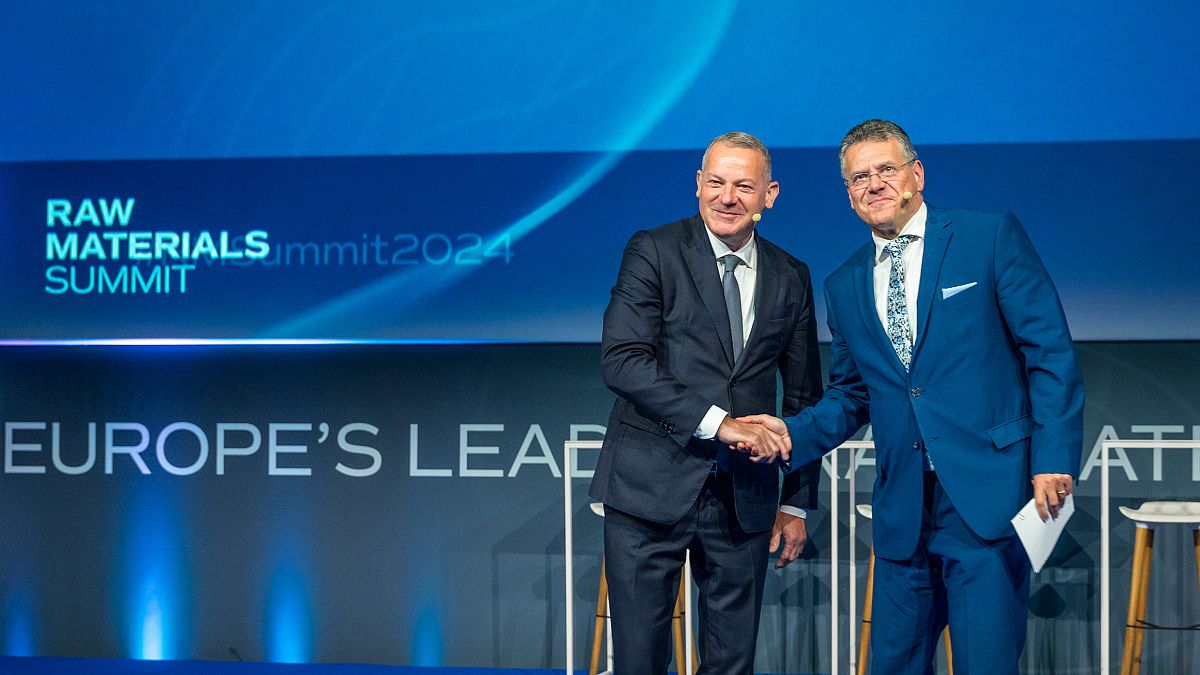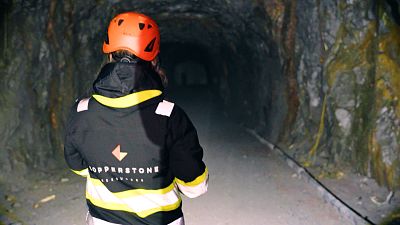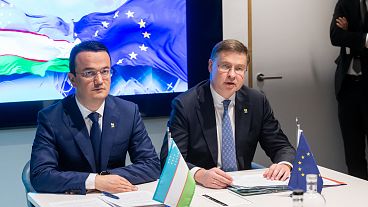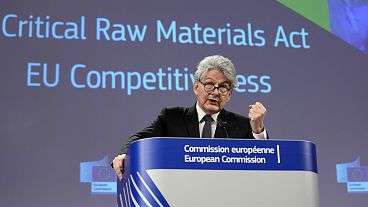EU executive will set a procurement system to secure supply of more than 30 critical raw minerals, similar to that applied to natural gas.
The European Commission is preparing to launch the first call for investors interested in jointly buying critical raw materials as EU legislation to secure supply of these vital minerals will kick-off from May 31, Commissioner Maroš Šefčovič told reporters today (May 15) at a high-level event in Brussels.
Over thirty identified critical raw materials will be procured in a similar fashion to that applied by the EU executive to procurement of natural gas, with joint purchasing schemes, Šefčovič told reporters at the EIT Raw Materials Summit.
With the Critical Raw Materials Act (CRMA) coming into force at the end of the month, the Slovak EU official unveiled the upcoming creation of a CRMA Board to enable liaison between EU countries and the EU executive in the procurement process. The Commission will issue a call for aggregated demand followed by an approach to global markets, to ultimately matchmake interested parties, Šefčovič explained.
“We want to offer project owners a single contact point and we also want to hear from member states how they will help us achieve these goals,” added Šefčovič.
The CRMA was proposed by the Commission in March 2023 to reduce reliance on foreign players including China, and to ensure diversification of supply needed for the development of batteries, electric vehicles and other clean technologies to deliver the European Green Deal, the EU’s plan to become carbon neutral by 2050.
Under the new rules, 34 critical and 17 strategic raw materials were established as “crucial” for the green and digital transitions, as well as for the defence and space industries. The new law sets three targets for the EU’s annual consumption of raw materials: 10% for local extraction, 40% to be processed in the EU and 25% to emanate from recycled materials. The new rules also decree that no more than 65% of a given mineral can be sourced from a non-EU country.
The bloc is also considering stockpiling critical raw materials, Šefčovič said, citing the Japanese model as “an inspiration”, with whom the EU signed last July an “administrative arrangement” to strengthen supply chains.
“We want to see fast processes for permitting. If we’re talking about processing and recycling plants, we would like to see permitting processes within 15 months. As for extraction processes, we would like to see permits completed within 27 months,” said Šefčovič referring to the provisions under the CRMA, a key element for the achievement of the CRMA's goals, since average times for mine construction can extend to 15 years.
The EU is also set to help prospective project owners with “coordinated support in terms of financing” with Šefčovič expressing “high hopes” that the European Investment Bank (EIB) as well as with the European Bank for Reconstruction and Development (EBRD) and other financing tools will help “facilitate de-risking”.
Bernd Schäfer, CEO and managing director at EIT RawMaterials, said the quest for critical minerals is “an essential building block” for sustainable long-term growth.
“Europe is at the forefront of creating knowledge, accelerating innovation and unlocking funding,” said Schäfer.
Additional investments of 1.7% to 2% of European GDP annually will be needed to meet the climate and energy transition’s goals, the EU has previously estimated, excluding investments in climate adaptation, biodiversity, the circular economy and in socio-economic recovery.
Faced with the need for investments from clean tech to clean energy, the EU needs to up its game, a group of environmental NGOs urged in a statement published today calling for a one trillion investment plan to be at the top of the agenda for future EU leadership.
"We call for a European Social and Green Investment Plan that fosters a socially fair transition towards a more resilient and fully sustainable Europe, unlocking over one trillion euros by 2030 under a reformed EU budget and a new fund via joint borrowing," read the joint statement from BirdLife International, Climate Action Network (CAN) Europe, the European Environmental Bureau, Transport & Environment and WWF.



